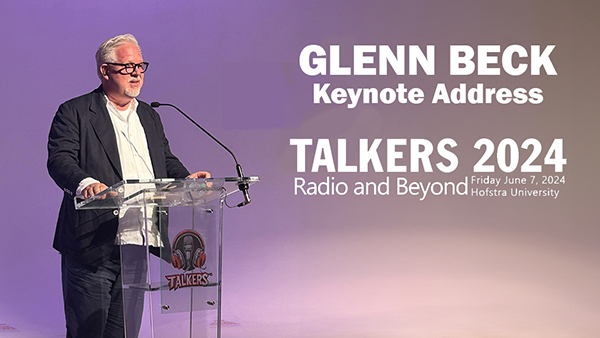By Holland Cooke
Consultant
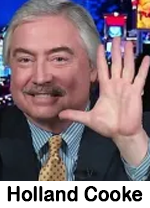 Remember the old Gatorade commercial? The “Be like Mike” jingle accompanied a montage of gravity-defying Michael Jordan dunks.
Remember the old Gatorade commercial? The “Be like Mike” jingle accompanied a montage of gravity-defying Michael Jordan dunks.
If you’ve heard Mike Hulvey speak, you know his birthday and blood type, because he told you, in his enthused trademark close: “March 4th and B positive!”
Before he recently hit-the-ground-running as Radio Advertising Bureau CEO and president, Mike was my longtime client when he ran Neuhoff Media. I consulted his news/talk/sports WSOY, Decatur and trained news people at other stations in the group. And the company’s “Media Made Locally” mantra was more than a slogan: “Nothing makes us happier than knowing that while our big corporate competitors are abandoning all the things we think make local media special – we’re doubling down.”
With broadcasters now so challenged by non-AM/FM audio competitors – and coping with cost cuts – the “Core Values” that clicked in these small Midwest markets seem like a prescription for stations everywhere:
1. Grit: “Stick with it.”
2. Community: “Give back.”
3. Innovation: “Think different.”
4. Excellence: “Be exceptional.”

In too many places now, a legacy call letter station is referred to as “the AM” within multi-station clusters and is bundled with music stations’ inventory… not the best sales model in Mike’s estimation: “The news/talk format offers endless opportunities to local clients.” Offered properly, these stations have “unique attributes and programming that lend itself to customize sponsorship and marketing extensions in any size market;” with otherwise “hidden gems that create opportunities for naming rights inside local sports and benchmark sponsorships as the local expert,” creating what he calls “lean-in listening that benefits advertisers.”
Live-N-local 24/7 seems quaint now, so we leverage imported programming, to make it sound more like part of the station’s own on-air family, rather than sounding like we’re an affiliate plugged-into the bird. The day Mike first introduced me at WSOY, I told the morning host: “We’ve got to get your voice in Rush Limbaugh and the Cardinals games more.”
Back to the future: With Monday-Friday syndicated talk programming mostly political, I asked Mike, “Could the sort of non-political shows that were such weekday winners for the late-great KGO and Buckley-owned WOR make a comeback?” His take: “I say yes. I believe that great locally targeted content is still a winning formula of success. While we as consumers have more choices than ever, we still crave information about where we live, work, and raise our families. While national political content has a very loud voice in the market, listeners appreciate those locally ‘world famous’ voices from where they live.”
Evidence, from the vault: 2-minute video, Mike explaining how winning radio is a relationship: https://youtu.be/wcsqrN7R7Ic
Holland Cooke (HollandCooke.com) is a consultant working the intersection of broadcasting and the Internet. He is the author of “The Local Radio Advantage: Your 4-Week Tune-In Tune-Up” and “Close Like Crazy: Local Direct Leads, Pitches & Specs That Earned the Benjamins” and “Confidential: Negotiation Checklist for Weekend Talk Radio.” Follow HC on Twitter @HollandCooke and connect on LinkedIn.
Share this with your network
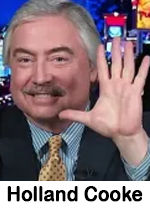 X – which most people I hear still call “Twitter” – is a great way to attract new ears.
X – which most people I hear still call “Twitter” – is a great way to attract new ears.



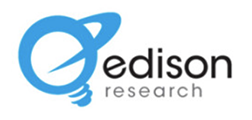 5,206 weekly podcast consumers age 13 and older in the U.S.) and the top three remain unchanged from the Q1 2024 data: 1) “The Joe Rogan Experience”; 2) audiochuck’s “Crime Junkie”; and The New York Times’ “The Daily.” Other moves of note include Ramsey Network’s “The Ramsey Show” up one spot to #15; The DailyWire’s “The Ben Shapiro Show” sliding three places to #16; and “The Tucker Carlson Podcast” dropping from #24 to #33.
5,206 weekly podcast consumers age 13 and older in the U.S.) and the top three remain unchanged from the Q1 2024 data: 1) “The Joe Rogan Experience”; 2) audiochuck’s “Crime Junkie”; and The New York Times’ “The Daily.” Other moves of note include Ramsey Network’s “The Ramsey Show” up one spot to #15; The DailyWire’s “The Ben Shapiro Show” sliding three places to #16; and “The Tucker Carlson Podcast” dropping from #24 to #33.  the Omni Nashville on Thursday, September 19. The Radio Hall of Fame will recognize its 2024 class of inductees at the gala event to be held in Music City for the first time ever. A portion of ticket purchases for the event is a tax-deductible charitable donation to the Museum of Broadcast Communications.
the Omni Nashville on Thursday, September 19. The Radio Hall of Fame will recognize its 2024 class of inductees at the gala event to be held in Music City for the first time ever. A portion of ticket purchases for the event is a tax-deductible charitable donation to the Museum of Broadcast Communications.  reveal that AM/FM ads far outperform most social media ads. For example, the firm Adelaide found that for revery $1,000 spent on AM/FM ads it would require spending $2,635 on Facebook ads for the same amount of attentiveness. However, it also found that just $698 of YouTube ads would yield the same degree of attentiveness as $1,000 of AM/FM advertising. The blog post also addresses the myth that video ads are necessarily more effective than audio ads.
reveal that AM/FM ads far outperform most social media ads. For example, the firm Adelaide found that for revery $1,000 spent on AM/FM ads it would require spending $2,635 on Facebook ads for the same amount of attentiveness. However, it also found that just $698 of YouTube ads would yield the same degree of attentiveness as $1,000 of AM/FM advertising. The blog post also addresses the myth that video ads are necessarily more effective than audio ads. 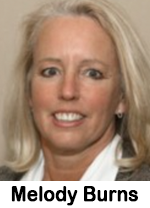 65 after a battle with cancer. Burns hosted a show on WGDJ from 2012 through 2014. After leaving her radio show, she became director of operations at Veterans Miracle Center, where veterans and military personnel could get new items they need at no cost.
65 after a battle with cancer. Burns hosted a show on WGDJ from 2012 through 2014. After leaving her radio show, she became director of operations at Veterans Miracle Center, where veterans and military personnel could get new items they need at no cost.  “If you missed Biff & Bev in-the-Morning, you missed…” It’s a donut: produced open and close, with an aircheck clip in the middle.
“If you missed Biff & Bev in-the-Morning, you missed…” It’s a donut: produced open and close, with an aircheck clip in the middle.

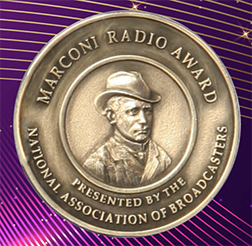 NAB Show New York on October 9. News/talk stations WLS-AM, Chicago and WLW-AM, Cincinnati are finalists for Legendary Station of the Year. WWTN-FM, Nashville talk host Dan Mandis is a finalist for Large Market Personality of the Year. KIDO-AM, Boise host Kevin Miller is a finalist for Medium Market Personality of the Year. The finalists for News/Talk Station of the Year are: WSB-AM, Atlanta; KRMG-FM, Tulsa; WLW-AM, Cincinnati; KDKA-AM, Pittsburgh; and WIBC-FM, Indianapolis.
NAB Show New York on October 9. News/talk stations WLS-AM, Chicago and WLW-AM, Cincinnati are finalists for Legendary Station of the Year. WWTN-FM, Nashville talk host Dan Mandis is a finalist for Large Market Personality of the Year. KIDO-AM, Boise host Kevin Miller is a finalist for Medium Market Personality of the Year. The finalists for News/Talk Station of the Year are: WSB-AM, Atlanta; KRMG-FM, Tulsa; WLW-AM, Cincinnati; KDKA-AM, Pittsburgh; and WIBC-FM, Indianapolis. 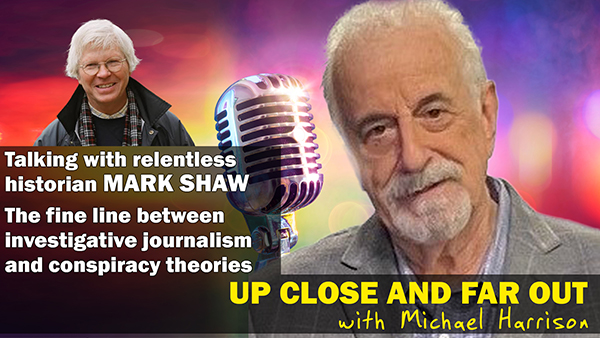
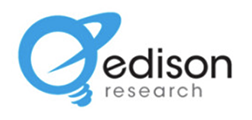 including radio over-the-air and radio streams. The next highest portion, 18%, was spent with owned music such as CDs and downloaded audio files, and 11% of their daily audio time went to streaming. Today, we see the increase in listening from linear sources to more on-demand audio sources such as YouTube for music or music videos (not the YouTube Music streaming service), and podcasts. Americans age 13+ now spend an average of 18% of their audio day listening to streaming music from sources such as Amazon Music, Apple Music, Pandora, and Spotify, 14% listening to YouTube for music, and 10% listening to podcasts. AM/FM radio still takes the largest portion of the audio day on a 13+ basis with 36%, driven heavily by in-car listening.” Edison director of research Laura Ivey adds, “A decade ago Share of Ear was created to answer the question, ‘What do Americans listen to?’ Today we can understand the listening patterns of Americans and see how audio sources have emerged to vie for our daily listening time. There are surely audio developments that we can’t even imagine that will impact our daily audio time over the next 10 years.”
including radio over-the-air and radio streams. The next highest portion, 18%, was spent with owned music such as CDs and downloaded audio files, and 11% of their daily audio time went to streaming. Today, we see the increase in listening from linear sources to more on-demand audio sources such as YouTube for music or music videos (not the YouTube Music streaming service), and podcasts. Americans age 13+ now spend an average of 18% of their audio day listening to streaming music from sources such as Amazon Music, Apple Music, Pandora, and Spotify, 14% listening to YouTube for music, and 10% listening to podcasts. AM/FM radio still takes the largest portion of the audio day on a 13+ basis with 36%, driven heavily by in-car listening.” Edison director of research Laura Ivey adds, “A decade ago Share of Ear was created to answer the question, ‘What do Americans listen to?’ Today we can understand the listening patterns of Americans and see how audio sources have emerged to vie for our daily listening time. There are surely audio developments that we can’t even imagine that will impact our daily audio time over the next 10 years.” 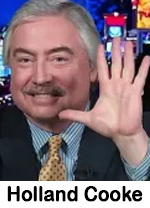 Many Americans have been, in the two years since the Supreme Court punted the issue down to the states. For suburban women voters in swing states, it is – by far – the number one issue, per a Wall Street Journal poll. It tipped 2022 midterms and 2023 elections and swung other elections in battleground states.
Many Americans have been, in the two years since the Supreme Court punted the issue down to the states. For suburban women voters in swing states, it is – by far – the number one issue, per a Wall Street Journal poll. It tipped 2022 midterms and 2023 elections and swung other elections in battleground states.
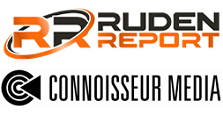 Founded 11 years ago by Dave Ruden, The Ruden Report website (www.therudenreport.com) is dedicated to Fairfield County (Connecticut) sports news and information. Ruden will remain with the online publication as director of operations. Connoisseur Media owner/chief executive officer Jeff Warshaw comments, “We’re happy to have The Ruden Report join our family. We look forward to offering our audience local content with his exceptional reporting.” Connoisseur Media senior vice president/general manager Kristin Okesson states, “This addition to our programming lineup is a perfect fit for each station and their audiences. As someone who values high school sports coverage, I’m excited to bring The Ruden Report to our six radio stations. I know our Southern Connecticut listeners will enjoy the local updates and in-depth coverage of their favorite teams, athletes, and games.” Ruden adds, “My ongoing goal has been to cover more which is why I have decided to partner with Connoisseur Media. It is a company that has both a longstanding tradition of excellence and the infrastructure to help take The Ruden Report to the next level.” Connoisseur’s six Connecticut stations include Bridgeport heritage news/talk WICC.
Founded 11 years ago by Dave Ruden, The Ruden Report website (www.therudenreport.com) is dedicated to Fairfield County (Connecticut) sports news and information. Ruden will remain with the online publication as director of operations. Connoisseur Media owner/chief executive officer Jeff Warshaw comments, “We’re happy to have The Ruden Report join our family. We look forward to offering our audience local content with his exceptional reporting.” Connoisseur Media senior vice president/general manager Kristin Okesson states, “This addition to our programming lineup is a perfect fit for each station and their audiences. As someone who values high school sports coverage, I’m excited to bring The Ruden Report to our six radio stations. I know our Southern Connecticut listeners will enjoy the local updates and in-depth coverage of their favorite teams, athletes, and games.” Ruden adds, “My ongoing goal has been to cover more which is why I have decided to partner with Connoisseur Media. It is a company that has both a longstanding tradition of excellence and the infrastructure to help take The Ruden Report to the next level.” Connoisseur’s six Connecticut stations include Bridgeport heritage news/talk WICC.

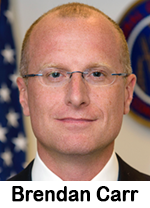 executive-level employee of the FCC to craft and advance a political playbook to influence the presidential election in favor of Donald Trump.” The Democrats say he may have violated ethics laws for federal employees and the Hatch Act. Carr tells Forbes that he sought counsel from FCC ethics officials prior to working on Project 2025 and they “approved of me participating in my personal capacity, which I did.” He also says they approved him using his FCC title in his biography. Forbes reports, “Carr’s chapter on the FCC calls for the agency to ‘change course’ and focus on reining in big tech and promoting national security. The FCC commissioner proposes overhauling legal protections that shield tech companies from liability for content posted on its platforms and supports Congress passing legislation similar to laws in Texas and Florida that punish social media companies for suspending or banning users based on their ‘viewpoints’ – part of broader claims by conservatives that social media companies are biased against them. Project 2025’s FCC agenda also calls for banning TikTok as part of a crackdown on infrastructure from China and calls for tech companies to provide greater transparency.”
executive-level employee of the FCC to craft and advance a political playbook to influence the presidential election in favor of Donald Trump.” The Democrats say he may have violated ethics laws for federal employees and the Hatch Act. Carr tells Forbes that he sought counsel from FCC ethics officials prior to working on Project 2025 and they “approved of me participating in my personal capacity, which I did.” He also says they approved him using his FCC title in his biography. Forbes reports, “Carr’s chapter on the FCC calls for the agency to ‘change course’ and focus on reining in big tech and promoting national security. The FCC commissioner proposes overhauling legal protections that shield tech companies from liability for content posted on its platforms and supports Congress passing legislation similar to laws in Texas and Florida that punish social media companies for suspending or banning users based on their ‘viewpoints’ – part of broader claims by conservatives that social media companies are biased against them. Project 2025’s FCC agenda also calls for banning TikTok as part of a crackdown on infrastructure from China and calls for tech companies to provide greater transparency.” 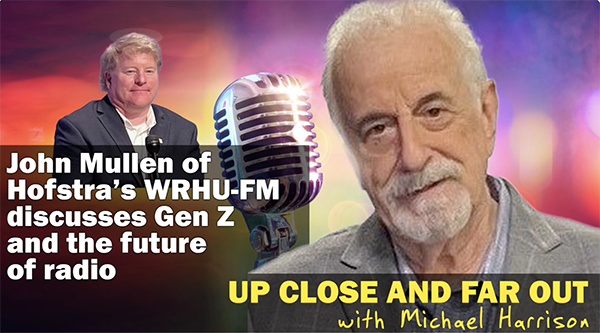
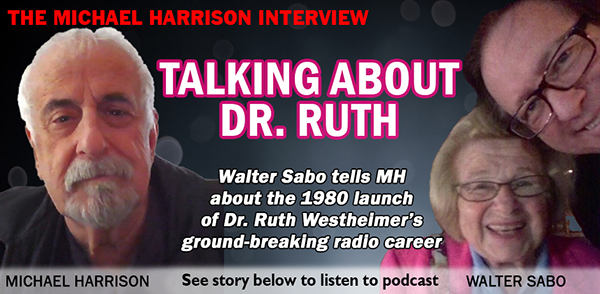
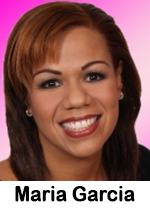 and WHQT in Miami; WCBS-AM, New York; WINS, New York; and WBLI, WALK, and WKJY on Long Island. She was a two-time Gracie Award winner and was a recipient of other honors and awards. Her greatest joy was her son Ethan, who she shared with her former husband Andrew Kalb. Garcia loved her animals and fostered many kittens through the years as well.
and WHQT in Miami; WCBS-AM, New York; WINS, New York; and WBLI, WALK, and WKJY on Long Island. She was a two-time Gracie Award winner and was a recipient of other honors and awards. Her greatest joy was her son Ethan, who she shared with her former husband Andrew Kalb. Garcia loved her animals and fostered many kittens through the years as well.  ideal medium platforms for retailers and e-commerce brands: Heavy audio listeners are more likely to shop online. Heavy AM/FM radio and podcast listeners also spend more online than TV viewers. AM/FM radio listeners and heavy podcast listeners over-index on Amazon Prime membership and purchase intent; 2) AM/FM radio makes your TV better – “20 gets you 50”: Nielsen Media Impact optimizations reveal shifting more media weight to AM/FM radio generates significantly more reach, especially among younger demographics 18-49. AM/FM radio does an extraordinary job increasing campaign reach among light TV viewers, who are far less likely to see retailer TV ads. The rule of thumb is “20 gets you 50”: a 20% shift of a TV media budget to AM/FM Radio generates a 50% increase in reach; and 3) Audio holiday AM/FM radio campaigns work: Consumers exposed to an Amazon holiday AM/FM radio campaign have higher brand equity (awareness, ad recall, prior purchase and purchase intent). Nielsen sales effect studies reveal AM/FM radio campaigns for retailers generate significant return on advertising spend: $15 dollars of incremental sales for every dollar of AM/FM radio advertising.
ideal medium platforms for retailers and e-commerce brands: Heavy audio listeners are more likely to shop online. Heavy AM/FM radio and podcast listeners also spend more online than TV viewers. AM/FM radio listeners and heavy podcast listeners over-index on Amazon Prime membership and purchase intent; 2) AM/FM radio makes your TV better – “20 gets you 50”: Nielsen Media Impact optimizations reveal shifting more media weight to AM/FM radio generates significantly more reach, especially among younger demographics 18-49. AM/FM radio does an extraordinary job increasing campaign reach among light TV viewers, who are far less likely to see retailer TV ads. The rule of thumb is “20 gets you 50”: a 20% shift of a TV media budget to AM/FM Radio generates a 50% increase in reach; and 3) Audio holiday AM/FM radio campaigns work: Consumers exposed to an Amazon holiday AM/FM radio campaign have higher brand equity (awareness, ad recall, prior purchase and purchase intent). Nielsen sales effect studies reveal AM/FM radio campaigns for retailers generate significant return on advertising spend: $15 dollars of incremental sales for every dollar of AM/FM radio advertising. 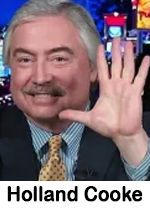 Next month, as the school year begins in so many places, the listeners that local retailers want as customers transition back to their “normal” routines. Their tempo changes and builds to a holiday season climax. And we – and our advertisers – want to be their soundtrack.
Next month, as the school year begins in so many places, the listeners that local retailers want as customers transition back to their “normal” routines. Their tempo changes and builds to a holiday season climax. And we – and our advertisers – want to be their soundtrack.
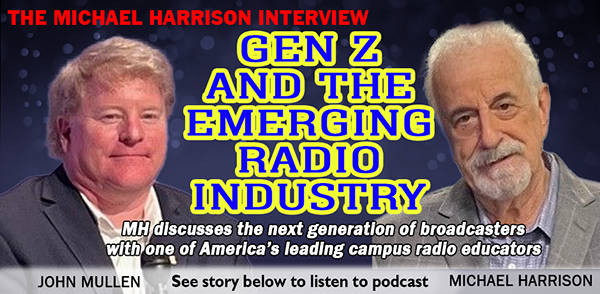
 MARU/Matchbox was hired to conduct an in-depth study of 603 weekly podcast consumers from April 19-24 of this year. Takeaways include: 1) YouTube is used most among Podcast Newcomers, Podcast Pioneers, and heavy podcast consumers; 2) YouTube podcast audience profile: Male and younger than the Apple Podcasts audience; 3) As the world’s entertainment search engine, YouTube is the dominant podcast discovery platform where audiences are more likely to find podcasts; and 4) Those who discover a podcast on YouTube say they stick with the platform for video, comments, community, entertainment, recommendations, and platform features. This growth for YouTube comes at the expense of Apple Podcasts. In July of 2019, Apple Podcasts was the most-used platform for 29% of weekly podcast consumers with 15% for YouTube. Five years later the figures are nearly reversed with 31% of weekly podcast consumers preferring YouTube and just 12% reporting Apple Podcasts as their most-used platform.
MARU/Matchbox was hired to conduct an in-depth study of 603 weekly podcast consumers from April 19-24 of this year. Takeaways include: 1) YouTube is used most among Podcast Newcomers, Podcast Pioneers, and heavy podcast consumers; 2) YouTube podcast audience profile: Male and younger than the Apple Podcasts audience; 3) As the world’s entertainment search engine, YouTube is the dominant podcast discovery platform where audiences are more likely to find podcasts; and 4) Those who discover a podcast on YouTube say they stick with the platform for video, comments, community, entertainment, recommendations, and platform features. This growth for YouTube comes at the expense of Apple Podcasts. In July of 2019, Apple Podcasts was the most-used platform for 29% of weekly podcast consumers with 15% for YouTube. Five years later the figures are nearly reversed with 31% of weekly podcast consumers preferring YouTube and just 12% reporting Apple Podcasts as their most-used platform. 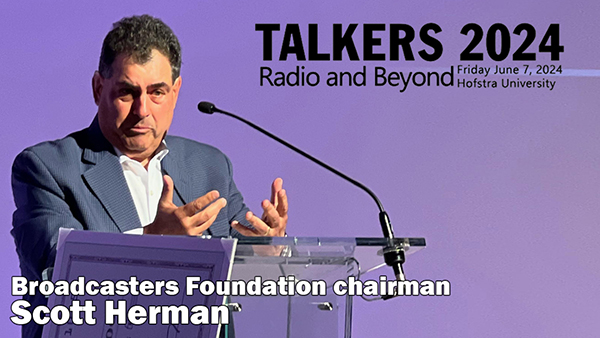
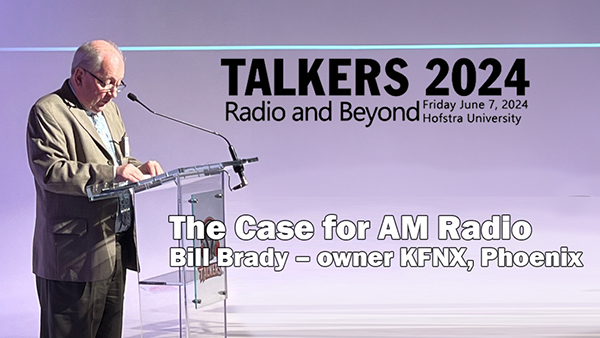
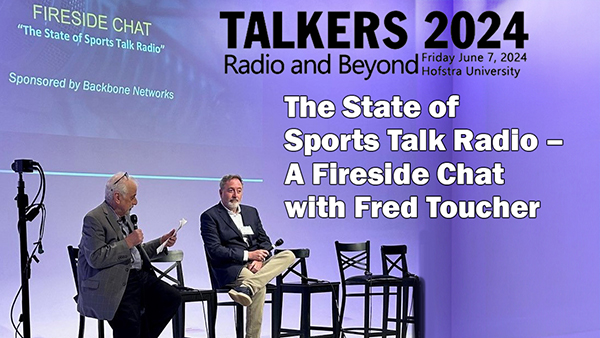
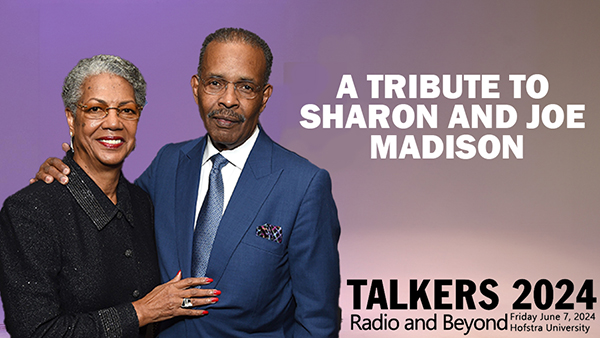
 Remember the old Gatorade commercial? The “Be like Mike” jingle accompanied a montage of gravity-defying Michael Jordan dunks.
Remember the old Gatorade commercial? The “Be like Mike” jingle accompanied a montage of gravity-defying Michael Jordan dunks.
